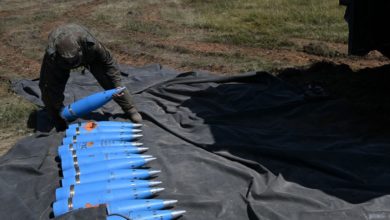EU Lawmakers Back Gas, Nuclear Energy as Sustainable

(BRUSSELS, Belgium)—European Union lawmakers voted Wednesday to include natural gas and nuclear in the bloc’s list of sustainable activities, backing a controversial proposal from the EU’s executive arm that has been drawing fierce criticism from environment groups and will likely trigger legal challenges.
As the EU wants to set the best global standards in the fight against climate change, the decision could tarnish the bloc’s image and question the region’s commitment to reaching climate neutrality by 2050.
The European Commission earlier this year made the proposal as part of its plans for building a climate-friendly future, dividing member countries and drawing outcry from environmentalists as “greenwashing.”
EU legislators from the environment and economy committees objected last month to the plan, setting up Wednesday’s decisive vote in Strasbourg, France. MEPs voted against the resolution with 328-278 votes, 33 legislators abstaining. In a rousing round of applause, the result was declared.
A majority of 353 needed was necessary to vote against the proposal. If the European Parliament and member countries don’t object to the proposal by July 11, the delegated will enter into force and apply as of next year.
Greenpeace immediately said it will submit a formal request for internal review to the European Commission, and then take legal action at the European Court of Justice if the result isn’t conclusive.
“It’s dirty politics and it’s an outrageous outcome to label gas and nuclear as green and keep more money flowing to (Russian President Vladimir) Putin’s war chest, but now we will fight this in the courts,” said Ariadna Rodrigo, Greenpeace’s EU sustainable finance campaigner.
European Parliament rapporteur Bas Eickhout rued “a dark day for the climate and the energy transition.”
According to the European Commission, green labeling is a system that defines sustainable energy investments. In certain circumstances, both nuclear and gas energy can now be included in the mix. This makes it more convenient for private investors to put money into either.
EU has set ambitious goals to achieve climate neutrality by 2050. It also wants to decrease greenhouse gas emissions by at minimum 55% in 2030. The commission believes that the classification system is essential for investors to sustainable energy. To meet 2030 goals, it estimates that 350 billion euros per year of investments will be required.
Introducing gas an nuclear in the equation has divided the 27 member countries amid Russia’s war in Ukraine, and even the parliament’s political groups.
Luxembourg’s energy minister, Claude Turmes, said he deeply regretted the European Parliament’s failure to bloc the commission’s plan, adding that his country together with Austria would move ahead with legal efforts to block the labeling of nuclear and gas as sustainable.
As lawmakers discussed the matter, protests which began on Tuesday were continued outside of the EU legislative.
According to environmentalists, the outcome could be a model for other legislators who will label energy sources that are polluting as sustainable.
“We have now officially validated greenwashing by law,” said Tsvetelina Kuzmanova of the campaign group E3G.
“The process and the decision have been entirely political, not scientific, to only benefit a small number of member states,” she said. “This would not stand a chance in court and will only create more uncertainty for financial markets and jeopardize EU’s climate ambition.”
Fridays for Future Youth Activist Group said that billions could be used to invest in nuclear power plants and gas infrastructure as a result. It also claimed that this would take much-needed funding from renewable sources.
While one argument to reject the proposal would be that it would boost Russian gas sales during times when Russia invades neighboring Ukraine, another reason is that the European Commission received a support letter from Ukraine backing its position.
European Commissioner Mairead McGuinness quoted from the letter from Ukraine’s energy minister Tuesday: “I strongly believe that the inclusion of gas and nuclear in the taxonomy is an important element of the energy security in Europe, especially with a view to replacing Russian gas.”
“I don’t think we should second-guess this letter,” McGuinness said.
Russia’s war in Ukraine has prompted the 27-nation bloc to sever ties with Russian fossil fuels. The member countries agreed to prohibit 90% of Russian oil and to also ban imports from Russia of Russian coal beginning in August.
But the EU hasn’t included gas — a fuel used to power factories and generate electricity — in its own sanctions for fear of seriously harming the European economy. The EU relied on Russia for 25 percent of its oil supplies and 40 percent of its natural gas before the conflict with Ukraine.
Here are more must-read stories from TIME




